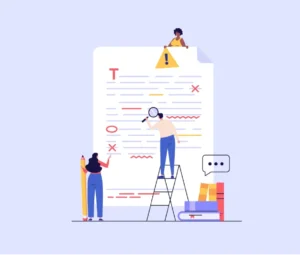5 Essential Landlord Tax Breaks (You May Be Missing Out On)
 If you’re a landlord, you know there are ways you can save on your taxes through claiming some expenses. But there are probably some great tax breaks you’re also overlooking. It can be difficult to know which tax breaks you can claim, and which breaks aren’t available to you. Additionally, there are some different classifications of tax breaks for you to consider.
If you’re a landlord, you know there are ways you can save on your taxes through claiming some expenses. But there are probably some great tax breaks you’re also overlooking. It can be difficult to know which tax breaks you can claim, and which breaks aren’t available to you. Additionally, there are some different classifications of tax breaks for you to consider.
A repair and an improvement, for example, are very similar but not the same. The deductions for a repair wouldn’t translate to an improvement, and you don’t want to be audited for a simple error in classification. Fortunately, there are ways you can get all the breaks you deserve on your taxes. When you know what you can claim and what you can’t, you’ll be able to protect your property investment and save money, at the same time.
That can give you peace of mind, financial security, and a way to make sure you can experience the true value of your rental property and all the benefits and breaks it has to offer. Here are five essential landlord tax breaks you might be missing out on.
- Repairs and Maintenance
Anything you do to make repairs on or maintain your rental properties is generally tax-deductible. Any expenses that are necessary to keep rental property in good condition qualify, as long as the expenses are to keep the property livable, not to enhance it. These types of expenses include things like landscaping, pool cleaning, HOA fees, pest control, and items you provide to tenants, like light bulbs and batteries for smoke alarms. The money you spend to maintain equipment used at the property also counts, such as maintenance to chainsaws and lawn mowers.
The costs of repairs are also deductible. Door handles, shelves, fixtures, plumbing, labor costs, and more are all covered. Repairing appliances counts, as do the rental fees for tools required to perform repairs. Additionally, anything that makes the property unlivable and causes your tenant to have to stay in a hotel would qualify. The hotel fees, for example, would be tax deductible because they would be considered part of the repair process. It’s important to remember that deductible repairs are only to get the property back to working condition. Making improvements to the property isn’t always something you can deduct.
- Advertising for Your Properties
When you advertise your property for sale, that’s a business expense. The good thing about business expenses is that most of them are tax deductible. You can advertise in print, on the radio, on the web, or even on television. No matter how you choose to reach out to potential tenants, you can take all the money you spend on those advertising efforts and write it off on your taxes. Keep your receipts, in case you ever face an audit. You also want to save those receipts to make sure you’re getting all the deductions you deserve and providing the correct tax information. That will help you lower your income, and save you money.
Keep in mind that word of mouth advertising doesn’t cost you anything, and you want to be careful not to deduct times you spend with other people where you might mention your properties. It’s not advertising if you tell someone about a rental property during a lunch with your friends, so you can’t write off the lunch. While most people probably wouldn’t do that anyway, some people might try to. By being careful about your advertising deductions, and asking for tax help if you’re not sure, you can reduce the chances that something you deduct could cause a problem later.
- Upgrades to the Property
Unlike repairs, upgrades to the property are things that add to or increase the value. If you replace a toilet with a better one, add a screened-in porch, or put in new kitchen cabinets, those are all upgrades. While some upgrades to your rental properties are going to be tax deductible, others are not. You can deduct part of the cost of an upgrade for energy efficiency, for example, but the entire cost won’t be a write-off on your income taxes. Depending on the type of upgrade you perform, there’s a form that can give you the percentage of deduction you can take.
Tax credit amounts are very specific, and some areas of improvement are a bit ambiguous as to whether they’re categorized as improvements or repairs. Replacing older windows, for example, is one of those gray areas for tax deduction. The specifics will be what makes the change a repair or an improvement, depending on the age of the windows you’re replacing and the kind of windows you’re putting in their place. You’ll also have to depreciate some improvement expenses, such as a roof replacement, even if repair to the roof was needed.
- Commissions and Services
When you pay for a property manager to handle your rentals, or you pay a professional fee to an attorney to write up your new lease agreements, you can deduct those fees. Those expenses are a part of doing business, and because of that they’re tax breaks for you. You can also deduct fees like using an accountant to do your taxes, and other types of professional service fees you pay to someone if those fees are specifically related to your rental properties. Real estate agents, notaries, investment portfolio managers, and other professionals all count when it comes to service fees.
- The Interest on Your Mortgage
When you have rental properties that have mortgages or other types of loans on them, you’ll pay interest on those debts. The interest for those payments is deductible as a business expense or tax break. There’s a yearly limit to how much you can deduct, but if you’re over that limit you want to make sure you deduct the maximum legal amount possible. That will give you the largest tax break. You can also deduct point, or prepaid interest, that you paid when taking out the original loan on any and all of your rental properties. For some landlords, that can add up to a very large tax break you don’t want to ignore.
You don’t have to miss out on the tax breaks you’re legally allowed to take. By making sure you do your research and talk to a professional about your tax situation, you’ll be better able to qualify for all the breaks that are available to you. Being a landlord can be a lucrative business, and it’s even more so when you’re taking the correct tax breaks to help you save money.













 Accessibility
Accessibility